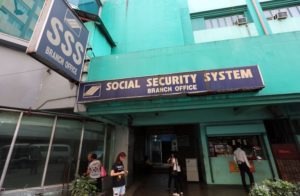The Philippines will continue to enjoy an extended period of relatively low borrowing costs—for now—after the central bank on Thursday decided to keep its key interest rate unchanged, despite rising prices of goods and services across the economy over the last few months.
At its meeting, the Bangko Sentral ng Pilipinas’ policymaking Monetary Board decided to maintain its overnight borrowing rate steady at 3 percent. The corresponding interest rates on the overnight lending and deposit facilities were also kept unchanged.
At the same time, however, BSP Governor Nestor Espenilla Jr. said that since “inflation expectations have started to rise” it would therefore “need to be monitored closely in the coming months.”
“Economic growth remains solid enough to absorb some policy tightening if warranted,” he said, suggesting that the central bank might raise interest rates if inflation continued to rise in the coming months.
There has been growing clamor among bankers and economists in recent weeks for the central bank to increase its key interest rate—on which wholesale and retail borrowing costs and interest yields are based—in response to the inflation rate that surprised BSP over the last two months.
Espenilla said Thursday’s Monetary Board’s decision was based on its assessment that, while recent inflation showed an elevated path in 2018, the latest baseline forecasts continued to show inflation remaining within the inflation target in 2018 and moderating further in 2019.
“The Monetary Board also considered that prospects for domestic activity continue to be firm on the back of robust domestic demand, strong growth in credit and liquidity and a sustained recovery in global economic growth,” he said.
At the same time, the Monetary Board observed that the risks to the inflation outlook “remain weighted toward the upside” owing mainly to price pressures emanating from pending petitions for adjustments in minimum wages and transportation fares.
The Monetary Board reiterated that it remained watchful of any signs of second-round effects and inflation becoming broader based.


